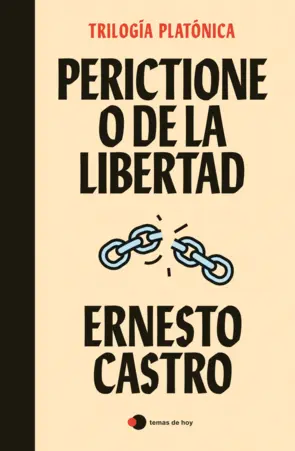Perictione or Freedom
Publishing date:8 february 2023
Synopsis:
A philosophical novel about the possibility of being free.
Can a person free himself from the bonds of family, academia, and friendship? Is madness the most extreme mode of freedom? Is it possible to read and write without strings?
Ernesto Castro’s second novel tells the story of young Perictione after her arrival in Paris in 1968. The daughter of a Greek-American family, our narrator leaves her native Tarpon Springs behind to open herself up to the world and the future. Thanks to the letters that Perictione writes to her mother, to one of her five brothers (who fled to Prague), to her thesis supervisor and to her best childhood friend, Ele Marsal, we witness one of the most turbulent years of the 20th century.
Above all, we witness the protagonist’s clash with the idea of freedom, in its most varied uses and abuses: from the crisis of communism in Eastern Europe to the assassination of Martin Luther King, from astrological determinism to prejudices about bisexuality, all with the suggestive company of Professor Marcel Nonclerc and student Françoise Dujoncquoy.
Perictione or Freedom is a wise novel about the human condition and a nod to the epistolary genre. It is also the second volume in the Platonic Trilogy, the narrative debut of the most brilliant thinker of his generation.
Technical Data
| Technical data | Publish date: 8 february 2023 ISBN: 978-84-9998-950-1 Pages: 168 Imprint: Temas de Hoy |
|---|---|
| Reviews | “This philosophical novel in dialogue or ‘sacra conversazione’ would work fantastically in theatrical adaptation which, paraphrasing Heidegger, brings forth the wasteland of Auschwitz through a polyphony around free will, totalitarianism, the soul and death by the hand of another or our own.” – ELOY FERNANDEZ PORTA “An ode to philosophy. It reminded me of the reason philosophy makes me happy.” – ALICIA VALDES “It is, above all, an ode to common thought. And that is one of Plato’s great legacies. The conversation, the narrative of friends who meet and talk, who reflect on the most painful, on the most inhuman.” – MICHAEL MOON “I was greatly moved by the first novel from young philosopher Ernesto Castro, in which five women converse in an Auschwitz barracks.” – JUAN MANUEL DE PRADA |

